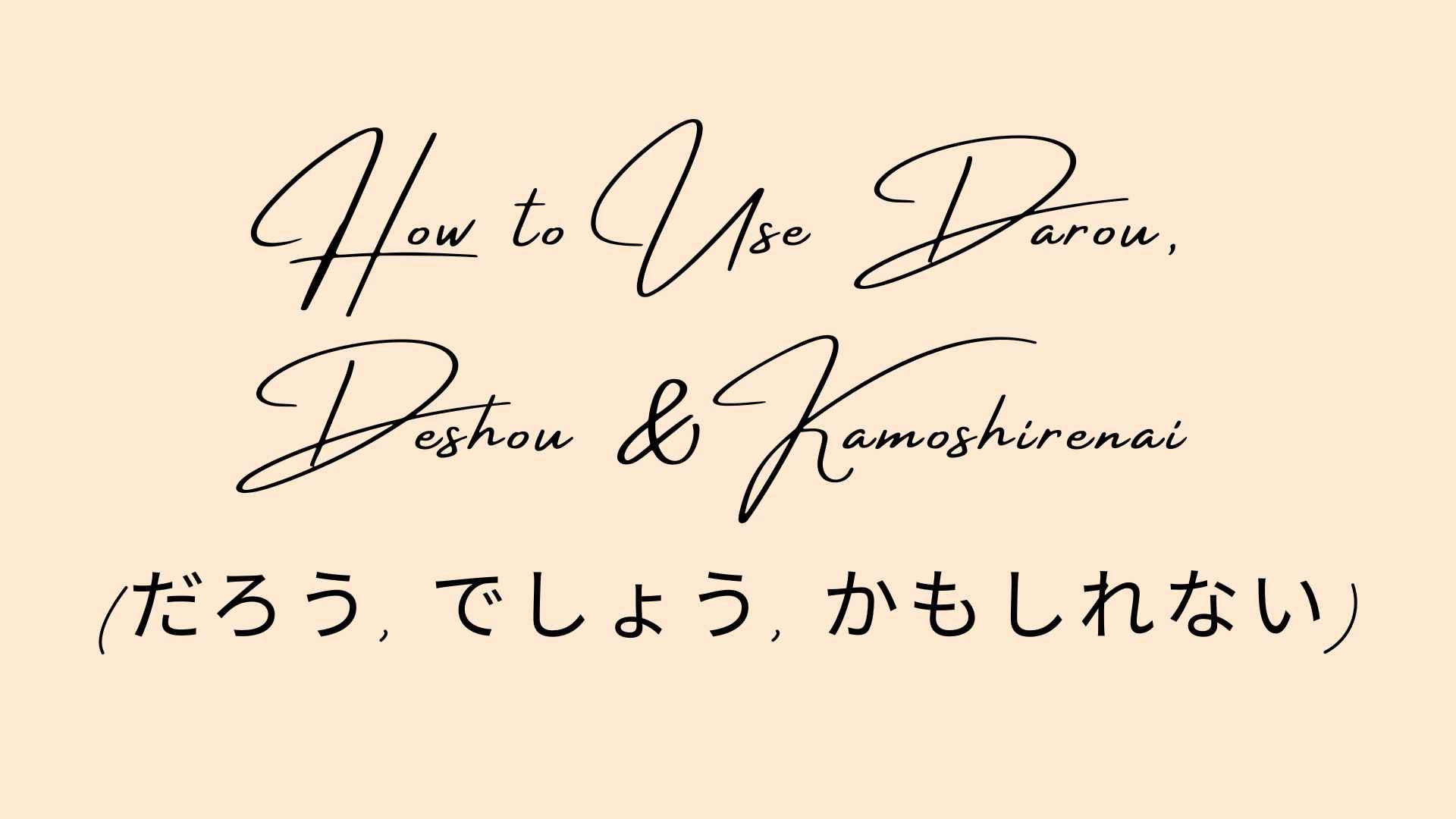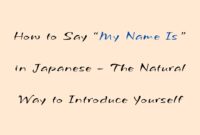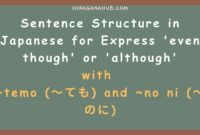“Mastering Japanese Probability: How to Use Darou, Deshou & Kamoshirenai (だろう, でしょう, かもしれない) Like a Native”
You know that moment when you’re pretty sure it’s gonna rain, but not 100%? In Japanese, you don’t just say “maybe”—you choose between darou, deshou, and kamoshirenai. And trust me, picking the wrong one can make you sound like a textbook robot.
After 15 years of teaching (and plenty of awkward mix-ups), here’s how to use these like a natural—with real-life examples, casual shortcuts, and even mistakes to avoid.
Darou vs. Deshou: The “Maybe” Duo
These two express probability, but deshou is the polite cousin of darou. Think of it like “prob” vs. “probably” in English—same core meaning, different vibes.
1. Guessing About Others (Not Yourself!)
✓ Correct:
- 彼はもう寝ただろう。
Kare wa mou neta darou.
“He’s probably already asleep.” (Casual) - 明日は晴れるでしょう。
Ashita wa hareru deshou.
“It’ll probably be sunny tomorrow.” (Polite)
✗ Mistake I’ve Heard:
- 私は疲れているだろう。 (Wrong!)
Watashi wa tsukarete iru darou.
“I’m probably tired.” → Sounds like you’re guessing about your own feelings. Weird, right? Use kamoshirenai instead (more below).
Also read: Learn Japanese Grammar ~no ga jouzu and ~no ga heta online free
Pro Tip: Add 多分 (tabun, “maybe”) to soften guesses:
- 多分、彼女は来ないだろう。
Tabun, kanojo wa konai darou.
“Maybe she won’t come.”
Tag Questions: The “Right?” Trick
Raise the pitch at the end, and darou/deshou turns into “isn’t it?” or “right?”
- このラーメン、美味しいだろう?
Kono raamen, oishii darou?
“This ramen’s good, right?” (Casual with friends) - 桜はきれいでしょう?
Sakura wa kirei deshou?
“The cherry blossoms are beautiful, aren’t they?” (Polite)
Warning: Don’t overuse this with strangers—it can sound pushy.
Darou ka / Deshou ka: The “I Wonder…” Vibe
Add か (ka), and suddenly you’re musing aloud like a philosopher:
- 彼はどこに行ったのだろうか…
Kare wa doko ni itta no darou ka…
“I wonder where he went…” - 電車は遅れるのでしょうか。
Densha wa okureru no deshou ka.
“I wonder if the train will be late.”
Casual Hack: Drop か for a mumbled だろ… (daro…) when thinking out loud.
Also read: Nice Job in Japanese: How to Compliment Like a Native Speaker!
Kamoshirenai: The “Stronger Maybe”
This one’s your go-to for:
- Higher uncertainty (“There’s a chance…”)
- Talking about yourself (unlike darou/deshou).
Formal:
- 会議に遅れるかもしれません。
Kaigi ni okureru kamoshiremasen.
“I might be late to the meeting.”
Casual (Super Common!):
- 彼、怒ってるかも。 (Shortened!)
Kare, okotteru kamo.
“He might be mad.”
Funny Mistake: A student once said “私は日本人かも” (Watashi wa nihonjin kamo) to mean “I might be Japanese?” Spoiler: They were not Japanese. Use this for temporary guesses, not identity!
When to Use Which? Quick Cheat Sheet
| Situation | Casual | Polite |
|---|---|---|
| Guessing (others) | だろう | でしょう |
| Tag question (“right?”) | だろう? | でしょう? |
| Self-guessing | ✗ | ✗ (Use かも) |
| High uncertainty | かも | かもしれません |
What’s the trickiest Japanese probability phrase for you? I used to mix up darou and kana all the time—until a student roasted me mid-class. 🫠 Drop your struggles below!



